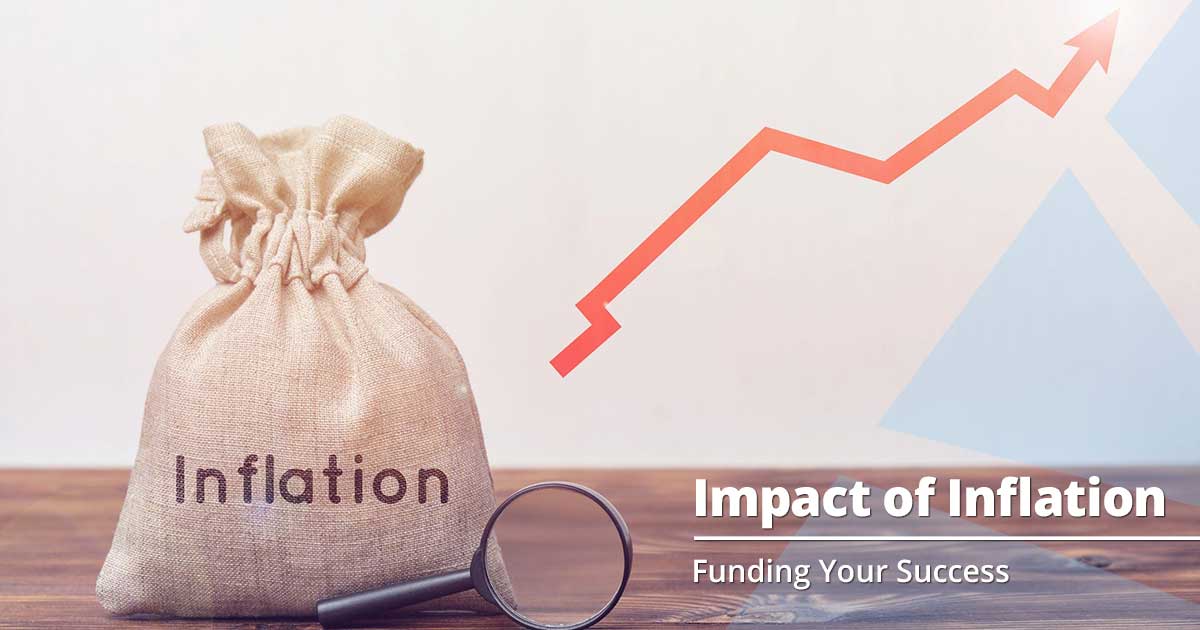How Does Inflation Impact Small Businesses?

We hear a lot about inflation today – it’s in the news almost daily, with CNBC reporting it’s the worst we’ve seen in 4 decades. As consumers we are struggling to deal with the impacts of rising costs, but small business owners are also feeling the pinch. No only are they experiencing a rise in manufacturing costs and a serious lack of product availability, but they’re also having a rough time retaining talent. More on that in a minute…
First of all, what is inflation?
As defined by Investopedia, inflation is “the decline of purchasing power of a given currency over time…The rise in the general level of prices, often expressed as a percentage, means that a unit of currency effectively buys less than it did in prior periods.”
To put it in simple terms, inflation is a progressive increase in prices. This corresponds to a decrease in the purchasing power of the country’s currency. So, what $1 bought you last year may not be as much as it buys you now. Your money buys you less.
The Great Resignation
The Great Resignation “is an economic trend in which employees voluntarily resign from their jobs en masse, beginning in early 2021, primarily in the United States” as defined by Wikipedia. At the beginning of the COVID-19 pandemic, when the government declined to offer protections to U.S. workers, wages stagnated while the cost of living rose. That’s what triggered this trend. Just as the country had to adjust to “the new normal” of COVID-19, so did American workers. Many of them chose to quit their jobs in purist of a different career path, to retire early, or to seek out companies more amenable to the way they wanted to live their lives (think remote working, for instance). Still others – faced with rising inflation – opted for higher wages.
Issues and Consequences
The obvious consequence for businesses is difficulty in hiring and retaining good talent. Great employees want (and need) higher wages to combat the increase in their workload (due to staffing shortages) and increase in the cost of living (due to inflation). Business owners are also facing an increase in the price of their goods and services due to inflation and the supply chain. Put these all together and you’ve got a recipe for chaos.
A recent report in Fortune notes that to tackle the affects of inflation, small businesses have had to increase their prices and/or decrease staff. The other option? About 45 percent of small businesses are opting to take out a loan to ride out the wave.
Where We Stand
In 2020, businesses were concerned about nationwide lockdowns, COVID preparedness, and the economic uncertainty thrust upon the globe. Today, we’re recovering from those fears and have replaced them with worker shortages, supply chain turmoil, and inflation. A tough trio to tackle, to be sure—but not something the United States hasn’t weathered before.
A lot of businesses are relying more and more on small business loans to get them through times of high inflation. If you’re considering this route, make sure you’re doing your research to find the loan company that can work best for you. For instance, ARF Financial prides itself in being a partner to all of our clients. We’re dedicated to working hand-in-hand with small businesses, making ourselves a true consulting partner when it comes to your financial options. Our short-term, business loans and lines of credit are available for business owners nationwide who otherwise may not be able to get the funds they need for success. Stop by today to learn more about our team, our company, and our pledge to your success.

